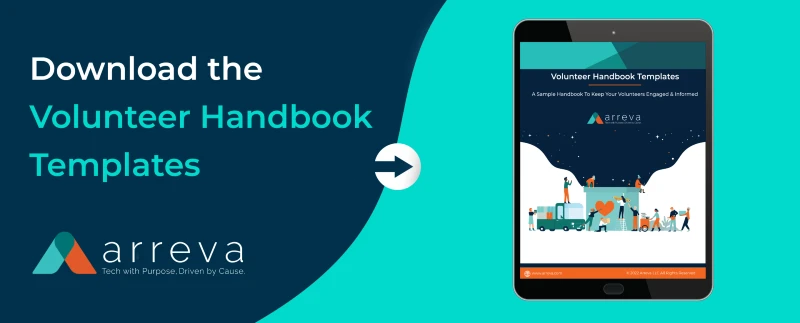5 Daily Habits of Effective Volunteer Managers

According to the Corporation for National & Community Service, people who volunteer are twice as likely to donate to a nonprofit organization compared to those who don’t volunteer. Volunteers not only ensure that programs run smoothly but they are also potential community ambassadors and donors for your organization.
Volunteer coordinators directly interact with these important individuals, so how they manage and interact with volunteers is also integral to the charity’s success. Below are 5 daily habits that volunteer managers should adopt to create an effective volunteer program.
Set Up Plans Ahead of Time
Effective volunteer managers set up tangible plans. They create plans to guide their day-to-day operations and come up with systems to communicate with volunteers. Project plans are essential to any nonprofit because they provide clear guidelines for how initiatives should be organized, and what duties volunteers should perform.
Productive volunteer managers also come up with plans to screen and recruit new volunteers and devise communication and risk-management policies to oversee behaviors. Expecting different situations and developing varied strategies ahead of time keeps the volunteer program efficient and organized.
Learn to Prioritize
Even a large nonprofit has only limited resources and volunteer managers need to learn to prioritize. Managers must be clear about the organization’s mission to help it achieve its most important goals. Furthermore, managers should also take the time to get to know their volunteers and be observant of the changing needs of the communities that they serve. By doing this,
coordinators can refine and update events and programs on a regular basis to use limited time and resources to best meet the organization’s objectives as well as the needs of volunteers.
Be Empathetic When Communicating
Volunteers handle demands from work, home, and volunteering. To provide an environment that has the least amount of stress possible, managers should interact with individuals in an empathetic way. In addition to finding out volunteers’ personal goals, coordinators should also feel motivated to really get into their shoes and be attentive to their feelings. Create a collaborative environment in which resources, insights, and opportunities are shared and the success of the team matters more than the success of any individual.
Don’t be too critical of mistakes; view them as opportunities for volunteers to learn and improve instead. In addition, rather than giving out negative comments right away, provide people with an opportunity to personally identify what they would have done differently first. Leaders interact with different kinds of individuals all the time, so empathy is key to effective volunteer management.
Invest in Volunteers and Yourself
Volunteers come equipped with diverse knowledge and skills, so provide them with opportunities to put their expertise to use. Moreover, when people are presented with experiences that they find to be rewarding, volunteer retention also improves. There are many ways to invest in volunteers. You can let them lead and provide suggestions for orientation training programs. You can also encourage long-term volunteers to become ambassadors and represent your nonprofit at outreach events.
In addition to supporting the growth of volunteers, a productive manager also invests in himself or herself. Actively reflect upon and seek solutions to problems you face at work, and attend networking and professional development events to gain new knowledge and learn from each other are some examples.
Strive to Be Professional
Efficient productive managers strive to be professional, always learning to improve their leadership and problem-solving skills. Come up with various ways to energize your team and motivate people to take ownership of their work. Use analytical skills to identify the root causes of problems when they emerge and be resourceful in overcoming them. Good volunteer managers act as role models for volunteers.
The above strategies enable effective collaboration between managers and volunteers who together ensure the charity’s success. There are many more ways to manage your volunteer program but no matter what you do, always make sure you uphold high moral standards and work ethics.


